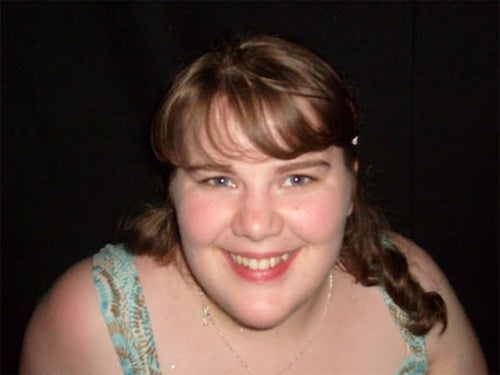My story: why I chose not to go to uni
Laura Jones talks to those who took the road less travelled and are happy with the outcome

Your support helps us to tell the story
From reproductive rights to climate change to Big Tech, The Independent is on the ground when the story is developing. Whether it's investigating the financials of Elon Musk's pro-Trump PAC or producing our latest documentary, 'The A Word', which shines a light on the American women fighting for reproductive rights, we know how important it is to parse out the facts from the messaging.
At such a critical moment in US history, we need reporters on the ground. Your donation allows us to keep sending journalists to speak to both sides of the story.
The Independent is trusted by Americans across the entire political spectrum. And unlike many other quality news outlets, we choose not to lock Americans out of our reporting and analysis with paywalls. We believe quality journalism should be available to everyone, paid for by those who can afford it.
Your support makes all the difference.‘The gap year really helped’
Victoria Parr, 20, took a last minute gap year after disappointing A-level results. She volunteered with CSV – Community Service Volunteers– the UK’s largest volunteering and training organisation for a year before heading to Chichester University to do a degree in social work.
“I knew I wasn’t going to do exceptionally well in my A-levels as my AS results hadn’t been great. I had previously thought about doing a nursing diploma but I decided I wanted to do social work and needed to go to university for that. So I decided to take a gap year and get some relevant experience. I spent the year with CSV, volunteering in the UK and helping children with disabilities.
It is not a nine-to-five day when you volunteer. Obviously, you go to the child’s house which means you spend at least two hours a day with a child and then you could spend the afternoon writing up the case in the records. But some days I’d spend six hours with the child in question.
I’m now at Chichester University doing a BA in social work. The gap year really helped. Apart from helping me get into uni in the first place, it will also give me an advantage in the jobs market. For instance, this year, I’ve been able to work with adults who have disabilities, which I couldn’t have done if I hadn’t volunteered with children last year. It is all going towards my career after university.”
‘I know 100 per cent that I did the right thing’
Gary Atkinson, 25, has a job in TV post-production with the London agency Rushes. He says you don’t have to go to uni to be a high flyer. “After my A-levels, I decided university wasn’t for me, even though I got two As and two Bs. I had a clear idea of what I wanted to do and a degree wasn’t necessary for my career path.
So I came to London. I took an entry-level job which I did for 10 months. Then an opportunity came up for a booking department post, the first rung on the ladder within a small company. After a year I was promoted to junior producer and at 21, to producer. Then I got a job freelancing at Rushes, one of the best established companies in London, and after two months they offered me a permanent contract.
The only way not going to university has affected me is that I have had some funny experiences at work – being the boss of people older than me for example. Perhaps you get promoted faster with a degree but I think companies also respond well to a good attitude and hard work. I know 100 per cent that I did the right thing.”
‘University appealed to me but it’s an awful lot of money’
Matthew Carter, 22, is a Royal Marine. He did a public services course for two years at college before entering a vigorous training scheme for the marines. In October he will spend six months serving in Afghanistan.
“You can go into the marines as early as 16, but I did two years at college on a public services course beforehand, which really opened my eyes to being in the services. My dad had always wanted me to be in the marines but I thought about it for a long time, and went to speak to the careers office before making a decision.
You have to do an entrance exam and academic and medical tests, and if you pass these then you progress to your Potential Royal Marines Course (PRMC) – a three day course which, if you pass, then leads to a basic 32-week training.
The idea of university appealed to me but it’s an awful lot of money. I’ve really enjoyed what I’ve done. It does take a lot longer in the marines to reach a good level of pay. Even compared to traffic wardens, we get paid less – which is crazy really, as we’re lads fighting for the country. I guess people choose it more for the lifestyle than the money though.”
Join our commenting forum
Join thought-provoking conversations, follow other Independent readers and see their replies
Comments